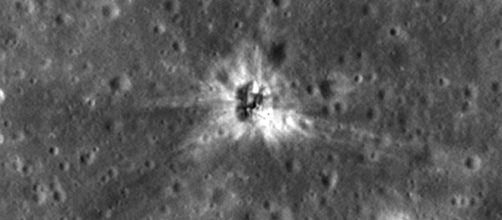In a sign that NASA is taking the hint from the Trump administration concerning its desire to return to the moon with commercial partnerships, the space agency has issued a Request For Information from the commercial space sector regarding the participation in private uncrewed lunar expeditions. NASA would like to assess flight opportunities on such commercial probes as early as the 2018 fiscal year and stretching to the next decade. The deadline for responses is 30 days from May 1.
Ever since President Obama canceled the Bush-era Constellation program that would have returned Americans to the moon, NASA has eschewed authorizing any more uncrewed probes to the moon.
But, starting last year with the rise of a nascent commercial lunar industry, the space agency has begun to regain interest in Earth’s Nearest Neighbor again. Partnering with commercial expeditions to the moon by adding instruments and other payloads is a cheap way to jump start the exploration of the moon.
The Trump administration’s interest in a return to the moon has motivated NASA to refocus attention on lunar exploration. The Google Lunar XPrize, which could see the first private lunar expedition launched before the end of the year, has risen awareness of the possibilities of the moon as well. Companies like Moon Express and Astrobotic are interested in starting lunar transportation and mining businesses.
Blue Origin, Jeff Bezos’ space company, is also interested in landing payloads on the lunar surface in partnership with NASA.
The space agency is interested in missions that “could help characterize the internal structure of the moon, characterize ancient impact basins, in addition to demonstrating key technologies necessary to establish sustainable exploration.” Those critical technologies would consist of prospecting and extracting lunar resources, such as ice that is known to reside in the shadowed portions of craters on the lunar poles.
Such resources would be used to sustain future lunar settlers, enable the exploration of the solar system, and feed space-based industries.
What the future shape of lunar exploration will be remains a work in progress. The Trump administration requested and got a study from NASA for a possible mission around the moon with a crew on board the first Orion spacecraft to be launched on a heavy lift Space Launch System, now scheduled for early 2019.
An initial landing on the moon with astronauts could happen before the end of President Trump’s second term. Such an event would serve as a capstone for the Trump presidency and as a legacy similar to that of President John F. Kennedy, who sent America to the moon the first time in the 1960s.

